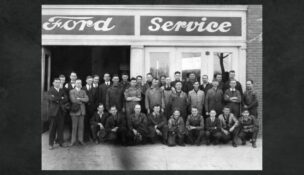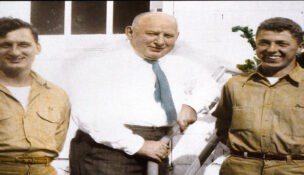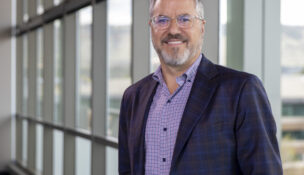6 Questions with Colorado Women’s Hall of Fame Inductee Velveta Golightly-Howell
Howell found her call to serve as an advocate for Civil Rights and social justice at age seven
Ali Longwell //April 8, 2020//
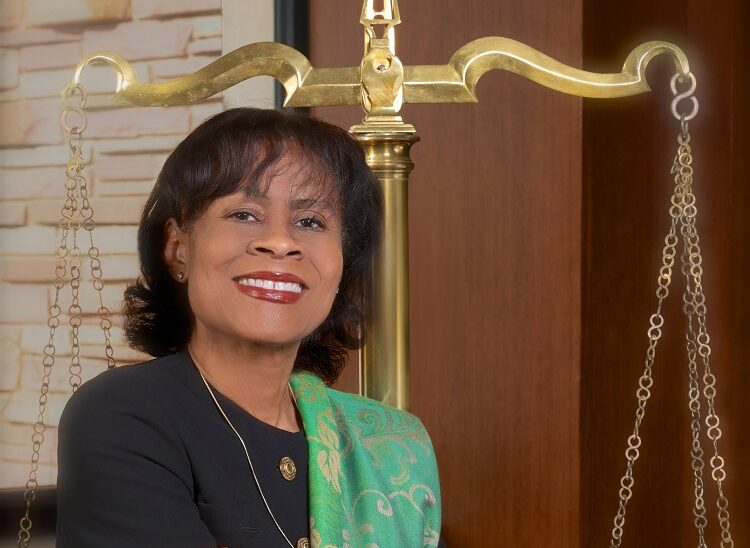

6 Questions with Colorado Women’s Hall of Fame Inductee Velveta Golightly-Howell
Howell found her call to serve as an advocate for Civil Rights and social justice at age seven
Ali Longwell //April 8, 2020//
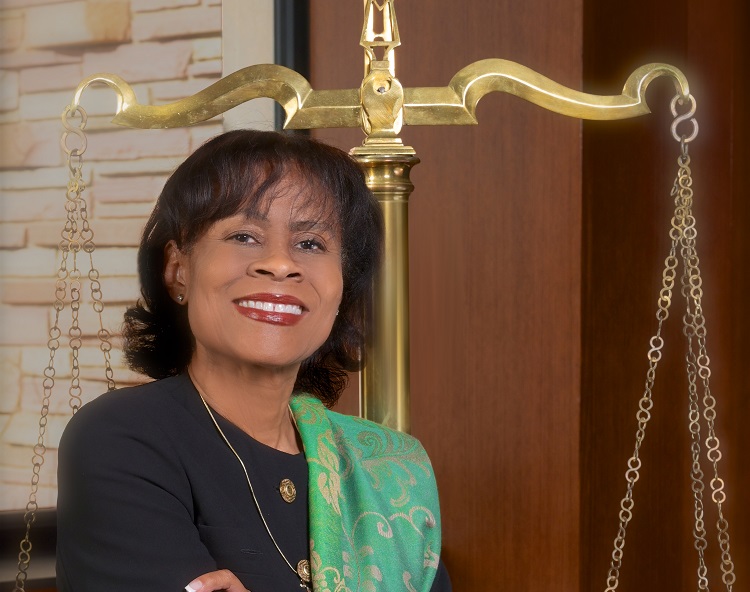
This interview is one in a series of interviews with the 2020 Colorado Women’s Hall of Fame inductees. Each year, the Hall of Fame inducts a group of contemporary and historic women who have made enduring and exemplary contributions to their field while inspiring and elevating the status of women.
Velveta Golightly-Howell was born and raised in Tuscaloosa, Ala. on values of faith and education. And at age seven, Howell realized her future was in serving as an advocate for Civil Rights and social justice. Later, she became the eighth African American female graduate of the University of Colorado Law School and the first woman of color appointed as Colorado’s Deputy District Attorney.
Throughout her career, working at the local, state, regional and federal levels, Howell has become a role model for other African American women and girls. Currently, she serves as one of twelve appointees to the Robert Wood Johnson-funded Colorado Healthcare Reform Executive Steering Committee and Turning Point Initiative.
Read the conversation between ColoradoBiz and Howell as she shares stories from her upbringing (including moments that shaped her life as a champion for social justice) and secrets to achieving seemingly unattainable goals.
ColoradoBiz: To start, tell me a little about your background and your journey to starting your career.
Velveta Howell: I am an Alabamian, born and raised in Tuscaloosa, Ala., in a generational family home built by my paternal grandfather, with my father’s assistance. My five siblings and I were blessed with two very supportive parents, Lonnie and Marie (nee, Brown) Golightly, who, although themselves were forced to leave school before earning a diploma, steadfastly encouraged us to do well in school because we were expected to graduate from college before moving into positions of service. Simultaneously, they provided us with a village of supporters; exceptional pre-school, kindergarten, and primary school teachers; and a caring community. As respected leaders that epitomized faith, our parents raised us in in the church where generations of family members had worshipped, while leading.
Our family home is located within two blocks of the University of Alabama (UA), Alabama’s flagship and public institution of higher education. Despite the U.S. Supreme Court’s 1954 Brown v. Board of Education decision requiring all public educational institutions, to offer African American students the equitable education afforded whites, Alabama refused to comply. In June of 1964, the federal government sent the National Guard to Tuscaloosa, where two accomplished students were forcibly admitted to the UA. Our oldest, and remarkably intelligent, sibling was not afforded this opportunity. In fact, Alabama did not integrate public schools before 1968.
We lived in an African American conclave that was 1-mile-long and one-half mile-wide, surrounded by neighborhoods of white families. Most Black families lived on the other side of town where the “Black” middle and high schools were located. At age six, I decided to become a lawyer and at age seven, I realized my call to serve as an advocate for Civil Rights and social justice.
I was among one of the first, and very few, African American students to integrate previously all-white Tuscaloosa middle and high schools, although the schools were located within one mile and no more than fifteen steps, respectively, from my family-owned home. I was also among the first, and sparse, number of Black students, admitted to the UA’s undergraduate program and law school.
CB: What are the moments/people/movements that defined your career?
VH: At age six, witnessing the irrational conduct by George Wallace, Alabama’s then governor, and the violent, angry, hate-filled crowds of white people, who did all possible to thwart integration and thus, deny those of my race the same educational opportunities as whites. Prior to then, our hardworking parents had protected us younger children from racial hatred, discrimination, and violence. Although my father said that he could not provide any rational answer for this highly emotionally traumatizing conduct because none existed, he assured me of coming change and that I could be a part of it. His words and participation in the Civil Rights Movement determined my career trajectory.
When I was seven years old, my father, for the first time ever, allowed me to join him on a client visit across town where other Black families lived. I was thrilled that he let me share this alone time with him and allowed me to sit in the passenger seat beside him! However, rather than a happy memory, what happened that day scarred my life.
For on that day, a young white patrolman stopped my then my fifty-seven-year-old father who had no prior police contacts, for a purported traffic violation (i.e., failure to fully stop at a stop sign). Observing the officer yelling at and harassing while all of time, calling him “boy,” infuriated me, so I demanded that the officer’s unfair and demeaning behavior towards my father, end. My insistence and the fact that I would not remain silent, although my father tried to get me to do so resulted in the officer threatening me with Juvenile Hall, I did not.
After we were allowed to leave, my father cautioned me that Black people, notwithstanding their age, how hard they worked to care for their families, paid taxes, and served as leaders in “our” community, must give deference to all white people. When asked why, he said, our people have been tortured, mutilated, hung for doing much less. I explained to him and my mother that I could not sit silently by when faced with injustice because I believed and trusted their everyday mantra, “All of us are created equal.”
CB: What were some of the ways that you found success?
VH: At an early age, our parents instilled in us that we would not be fully fulfilled, if we tried to walk through life alone. They role-modeled faith, compassion, humility, respect for all people and devotion to uplifting others, without regard to any factor other than our shared humanness. This foundation led to my building coalitions, working from within systems to enhance them, and working outside of systems to achieve needed societal change where all people are afforded equal opportunity.
CB: What is your proudest achievement?
VH: I choose not to take pride in anything that I do, based on my recognition that without the Higher Power that strengthens me and my village, and those willing to share a spirit of collaboration, nothing would be possible. Rather, I am honored to create pathways that enrich others’ lives and, bring together rainbows of sustainable partnerships to facilitate opportunity for all, particularly vulnerable populations.
Included among them are poor, rural and largely non-white communities. Also included are persons with disabilities, whose value is often underestimated, who are starkly underpaid, and often passed over, despite their immense abilities. And, individuals who simply seek to better their and their families’ lives through stable jobs, livable wages, food stability, quality healthcare and education and clean air and water.
CB: What was your greatest hurdle and how did you overcome it?
VH: My greatest hurdle has been and remains those privileged and non-privileged individuals who choose not to understand who I am, my strength, courage and resilience, and why I continue to charge forward regardless of societal barriers, emanating from racial and gender discrimination and institutional racism embedded in our country since 1492 when the only real Native peoples were disenfranchised and from which their lands were taken.
CB: What advice would you give to women today?
VH: Know yourself, your abilities, and your worth. Do not allow any person, organization or institution make you feel either less than or unworthy of what you have worked hard to achieve, personally and professionally. Reach high, and do not stop when you run into pitfalls. Rather, rise and move on swiftly, while recognizing that we all are nothing more than human beings as evidenced by our genomes. And, never forget that our collective strength is invincible.






